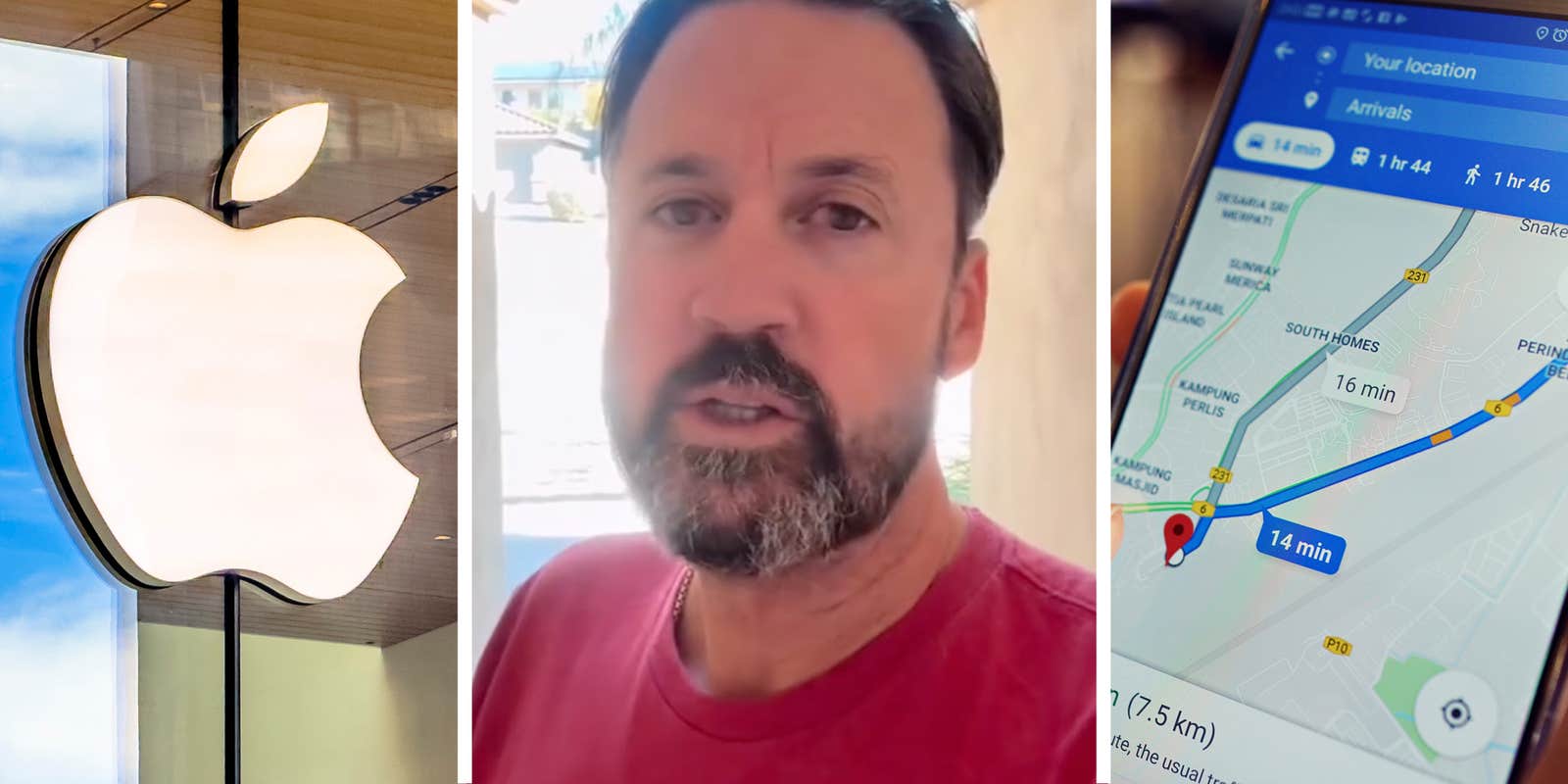Does Apple AI learn banking info from your apps? An internet privacy expert says you should be concerned about how the new tech interacts with your banking information.
Chip Hallett (@hustlewithchip), author of The Ultimate Privacy Playbook, says that if you have a new iPhone equipped with Apple’s new Apple Intelligence, you should take steps to lock down your info.
Hallett published his warning to his TikTok account on Saturday. Since then, the video has picked up over 777,000 views and counting.
Apple AI banking info warning
“Do you have a new Apple iPhone 15 or the new Apple iPhone 16? If you do, I need you to pay close attention to this,” Hallett tells his viewers.
“Apple Intelligence is going to be learning how you use your banking apps, your financial apps, and your location maps,” he claims.
Apple has been rolling out the new AI feature in its iOS 18.1, iPadOS 18.1, and macOS Sequoia 15 operating systems.
The Apple Intelligence feature is embedded in the respective operating systems rather than being a stand-alone program.
According to The Guardian, “the company’s AI [will] be integrated throughout the operating systems on its Mac laptops, iPad tablets, and iPhones, as well as be able to pull information from and take action within apps.”
Hallett explains how you can turn off that functionality.
How to turn off Apple AI in your apps
Hallett tells viewers to open their iPhone’s Settings, scroll down to Apple Intelligence & Siri, scroll down again, and select Apps.
“Scroll down all the way to wherever your banking information is,” Hallett says, displaying his own Wells Fargo App.
He advises viewers to deselect the Learn from this App switch, as well as the Suggest App and Suggest Notifications switches.
A red screen text reads, “I don’t want Siri to learn how I use my bank.”
“I also don’t want Google Maps knowing my location and learning off my location,” he states. He shows how to turn off that functionality using an identical process.
Is Apple mining data?
Apple has long positioned itself as a company that prioritizes its customers’ privacy concerns. However, Wired has noted, “its increasing push into services and advertising opens the door for more potential data collection.”
Apple’s privacy policy is a hefty read, coming in at around 4,000 words. However, it does state that the company does have the right to collect certain data.
“This can include the apps you use, searches within Apple’s apps, such as the App Store, and analytics or crash data,” per Wired.
Essentially, Apple Intelligence’s use of data is kept “on device,” and it isn’t supposed to be shared. It’s intended to enhance the user experience and is ostensibly voluntary.
However, as Hallett points out, the ability to learn from your apps is the default and must be deactivated by the user to disable the feature.
The Daily Dot reached out to Apple via email for comment.
@hustlewithchip ‼️Iphone 15 and 16 users please pay close attention🦻 Do not use Apple Intelligence until you watch this reel first! ✅ Come along amd let me show you some settings you should change first, if protecting your privacy is important to you🛡️ #appleintelligence #iphone15 #iphone16 #iphone15promax #iphone16promax ♬ original sound – hustlewithchip
What did viewers think?
Surprisingly, many viewers expressed little to no concern over the AI.
Caroline (@carolineturnbull23) wrote, “There is nothing in my bank not too worried.” Another viewer agreed, writing, “They can learn how much I don’t have in the bank.”
“What can they learn from location and bank app… what are the[y] stealing? Most people’s address is public info… you go to work, home, grocery store, get paid … and pay bills…. Who cares?” another viewer noted.
Another viewer asked, “Why would Apple intelligence ‘ learn ‘ your banking habits? Financial apps are encrypted and Apple Intelligence is only available on the new iPhone.”
The Daily Dot reached out to Hallett via TikTok and Instagram direct message for further comment.
Internet culture is chaotic—but we’ll break it down for you in one daily email. Sign up for the Daily Dot’s web_crawlr newsletter here. You’ll get the best (and worst) of the internet straight into your inbox.


